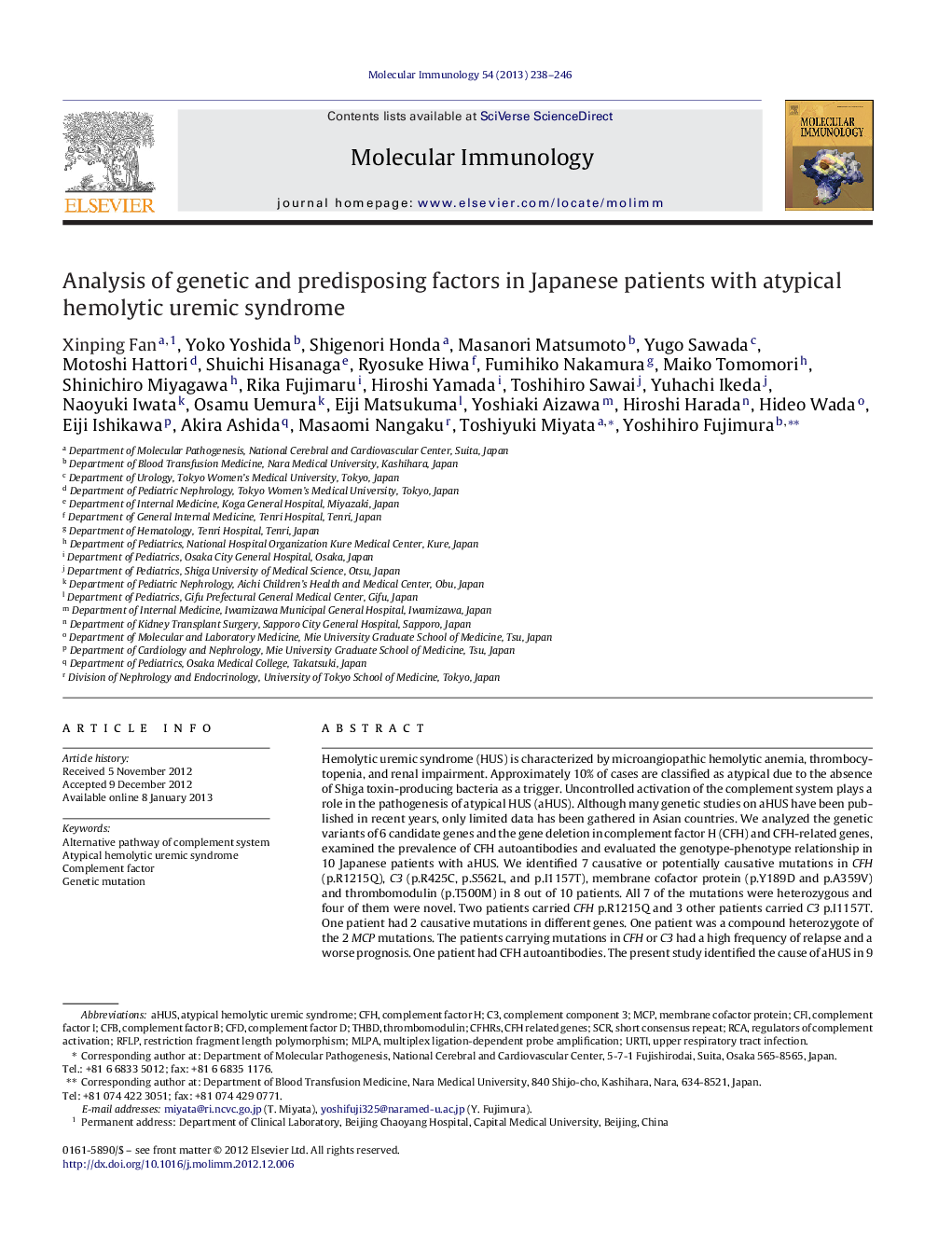| کد مقاله | کد نشریه | سال انتشار | مقاله انگلیسی | نسخه تمام متن |
|---|---|---|---|---|
| 2831165 | 1163782 | 2013 | 9 صفحه PDF | دانلود رایگان |

Hemolytic uremic syndrome (HUS) is characterized by microangiopathic hemolytic anemia, thrombocytopenia, and renal impairment. Approximately 10% of cases are classified as atypical due to the absence of Shiga toxin-producing bacteria as a trigger. Uncontrolled activation of the complement system plays a role in the pathogenesis of atypical HUS (aHUS). Although many genetic studies on aHUS have been published in recent years, only limited data has been gathered in Asian countries. We analyzed the genetic variants of 6 candidate genes and the gene deletion in complement factor H (CFH) and CFH-related genes, examined the prevalence of CFH autoantibodies and evaluated the genotype-phenotype relationship in 10 Japanese patients with aHUS. We identified 7 causative or potentially causative mutations in CFH (p.R1215Q), C3 (p.R425C, p.S562L, and p.I1157T), membrane cofactor protein (p.Y189D and p.A359V) and thrombomodulin (p.T500M) in 8 out of 10 patients. All 7 of the mutations were heterozygous and four of them were novel. Two patients carried CFH p.R1215Q and 3 other patients carried C3 p.I1157T. One patient had 2 causative mutations in different genes. One patient was a compound heterozygote of the 2 MCP mutations. The patients carrying mutations in CFH or C3 had a high frequency of relapse and a worse prognosis. One patient had CFH autoantibodies. The present study identified the cause of aHUS in 9 out of 10 Japanese patients. Since the phenotype-genotype correlation of aHUS has clinical significance in predicting renal recovery and transplant outcome, a comprehensively accurate assessment of molecular variation would be necessary for the proper management of aHUS patients in Japan.
► Complement dysregulation can cause atypical hemolytic uremic syndrome (aHUS).
► We identified mutations in the complement-related genes in Japanese aHUS patients.
► Patients carrying mutations in CFH or C3 had more relapses and a worse prognosis.
► An established diagnostic system for aHUS is important for the proper management of patients.
Journal: Molecular Immunology - Volume 54, Issue 2, June 2013, Pages 238–246